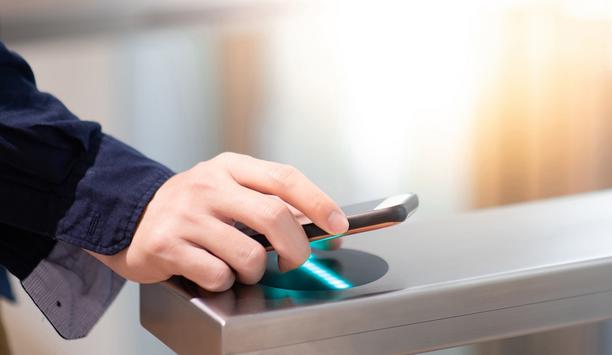Visitor management systems - Round table discussions
Video surveillance has been a dominant factor in the casino market since the 1950s when video replaced the use of elevated walkways that allowed casino security personnel to monitor the gaming floor from above. As technology continues to evolve, we can expect to see more innovative uses of video in the casino market. Beyond video, other technologies are also transforming the casino experience. We asked this week’s Expert Panel Roundtable: How are new technologies impacting the casino surve...
An organisation’s security director manages a staff of security personnel, implements and enforces security policies and procedures, and generally ensures the safety of personnel and visitors to the organisation’s premises. Over the years, the role of security director has expanded to include new disciplines such as cybersecurity. More and more, security directors are also taking a “seat at the table” as integral and critical members of a company’s management team....
There is safety in numbers, or so the expression goes. Generally speaking, several employees working together tend to be safer than a single employee working alone. Even so, some environments require that workers complete their jobs alone, thus presenting a unique combination of security vulnerabilities. The U.S. Occupational Safety and Health Administration (OSHA) defines a lone worker as “an employee working alone, such as in a confined space or isolated location.” We asked this we...
Historically, the emphasis of security systems has been on reactivity, whether it’s providing video evidence of an incident or data to support a resulting investigation. Reactivity is core to impactful security, but increasingly, systems are also seeking to be more proactive. A proactive system seeks to prevent events from happening in the first place, thus mitigating the harm to an organisation, and making the need for a reactive response moot. We asked this week’s Expert Panel Roun...
The role of the integrator/installer in the physical security marketplace is shifting as technologies evolve and applications expand. Integrators are being faced with a need to augment their expertise both in a wider range of systems and deeper into the specifics of each increasingly complex technology. At the end of the day, it falls to the integrator/installer to ensure a system performs as promised, however much a consultant or even a manufacturer might be involved in the process. We asked th...
Time flies in the busy world of security, so it’s no surprise that the midpoint of 2023 comes before know it. Let’s pause after the first half of the year to look ahead at what can expect during the second half (Hint: It’s all about AI). We asked this week’s Expert Panel Roundtable: What will likely be the most important technology development in the security marketplace in the second half of 2023?
Risk is a core concept in the practice of physical security. However, the risk is not always assessed effectively. Ideally, an organisation's appetite for risk guides its security strategy and action planning to the minutest detail, including buying decisions for security equipment and systems. We asked this week's Expert Panel Roundtable: How does the concept of risk influence buying decisions in the security market?
A sad irony in the physical security industry has been the lax attention paid historically to the cybersecurity elements of our industry’s systems. However, the picture has improved starkly in recent years as manufacturers have stepped up to meet the cybersecurity challenges and awareness of the issue has become much higher. We asked this week’s Expert Panel Roundtable: What's new in cybersecurity for physical security systems?
The upcoming ISC West trade show in Las Vegas will offer innumerable networking and learning opportunities for attendees. Manufacturers will take the opportunity to promote their businesses and showcase products and services to a targeted audience. Best of all, the event will be "in person," an advantage we should never again take for granted. We asked this week's Expert Panel Roundtable: What big announcements do you expect at ISC West 2023?
Early in the pandemic, before the mechanisms of COVID spread were clearly understood, there was talk about the disease being transmitted through contact with surfaces. Such concerns created a windfall for manufacturers of hand sanitizer, and broadly changed the perceived risks of touching surfaces, perhaps forever. Touching the same surface as hundreds of other people suddenly became less desirable, thus boosting the fortunes of “touchless” access control and security devices. But wi...
The intersection of consumer electronics and the physical security marketplace is a fertile sector for growth and innovation. Consumers increasingly have the same high expectations for the operation of their workplace technologies as they are accustomed to in the digital world at large. We asked this week’s Expert Panel Roundtable: How do developments in personal electronics impact customer expectations in the physical security market?
The COVID-19 pandemic has complicated the task of securing hospitals and healthcare facilities by adding new concerns about disease transmission to the long list of other threats healthcare security professionals face. Hospital security must also crack the code to both allow open public access to healthcare facilities while keeping out violence and other security threats. We asked this week’s Expert Panel Roundtable: What are the security challenges of the healthcare industry?
The idea of touchless systems has gained new levels of prominence during the last year, driven by the global COVID-19 pandemic. Contactless systems have been part of the industry’s toolbox for decades, while technologies like facial and iris recognition are finding new uses every day. We asked this week’s Expert Panel Roundtable: Which security markets are embracing touchless, contactless systems and why?
There is a broad appeal to the idea of using a smartphone or wearable device as a credential for physical access control systems. Smartphones already perform a range of tasks that extend beyond making a phone call. Shouldn’t opening the door at a workplace be among them? It’s a simple idea, but there are obstacles for the industry to get there from here. We asked this week’s Expert Panel Roundtable: What are the challenges and benefits of mobile access control solutions?
In the past few weeks, the light at the end of the COVID-19 tunnel has brightened, providing new levels of hope that the worst of the pandemic is behind us. Dare we now consider what life will be like after the pandemic is over? Considering the possible impact on our industry, we asked this week’s Expert Panel Roundtable: Which security technologies will be most useful in a post-pandemic world?
Public spaces provide soft targets and are often the sites of terrorist or active shooter attacks. Public spaces, by definition, require easy accessibility and unrestricted movement. Given that openness, what security technologies can provide real results? We asked this week’s Expert Panel Roundtable: How is technology innovation impacting the security of public spaces?
Video analytics are undergoing a fundamental change in the market as machine learning enhances their accuracy while expanding their capabilities. But what are those expanded capabilities and how are they impacting the operation of security and video systems? We asked this week’s Expert Panel Roundtable: What new video analytics are having an impact in the market and how?
Fire and security systems are two elements of the same mission: To keep buildings and their occupants safe. However, the two systems often operate independently and may not be integrated. Should there be more integration and what are the pitfalls? We asked this week’s Expert Panel Roundtable: What are the challenges and opportunities of integrating security and fire systems?
The new school year is a good time to reflect on the role of security in protecting our schools. From video to access control to some newer technologies, our Expert Panel Roundtable found plenty to talk about when we asked this week’s question: How does security technology make our schools safer?
In the digital age, software is a component of almost all systems, including those that drive the physical security market. A trend toward hardware commoditisation is making the role of software even more central to providing value to security solutions. Software developments make more things possible and drive innovation in the market. We asked this week's Expert Panel Roundtable: How do software improvements drive physical security?
When it comes to security and to ensuring the integrity of gaming operations, today’s casino market is risk-averse. Regulations direct the required surveillance of table games and slot machines, while modern casinos are often sprawling complexes that have a variety of other risks to be addressed, too. We asked this week’s Expert Panel Roundtable: What are the challenges of the casino market relating to security and surveillance technology?
The ability to treat patients in a secure environment is a base requirement of hospitals and other healthcare facilities. Whether facilities are large or small, security challenges abound, including perimeter security, access control of sensitive areas, video surveillance, and even a long list of cyber-risks. We asked this week’s Expert Panel Roundtable: What are the security challenges of hospitals and the healthcare industry?
Using a smart phone as an access control credential is an idea whose time has come – or has it? The flexible uses of smart phones are transforming our lives in multiple ways, and the devices are replacing everything from our alarm clocks to our wallets to our televisions. However, the transformation from using a card to using a mobile credential for access control is far from a no-brainer for many organisations, which obstacles to a fast or easy transition. We asked this week’s Exper...
Hospitality businesses work to provide a safe and pleasant customer experience for their guests. Hotels offer a “home away from home” for millions of guests every day around the world. These are businesses of many sizes and types, providing services ranging from luxury accommodations to simple lodging for business travelers to family vacation experiences. Hospitality businesses also include restaurants, bars, movie theaters and other venues. Security needs are varied and require tech...
Enterprise customers provide a large, and very lucrative, business opportunity for the physical security market. These customers include big global companies with plenty of revenue to spend and employees and facilities to protect. As a group, enterprise customers also tend to be a demanding lot, requiring systems that are large, scalable, that can operate across a wide geographic area, and that provide top-notch system performance. Enterprise customers set the standards of performance for the en...
The new year presents new opportunities for the physical security marketplace. In many ways, 2018 will undoubtedly see further development of trends we saw in 2017. In fact, some of the trends determining the future of the physical security industry have been in place for many years. However, not every event in 2018 can be foreseen or easily predicted. To be sure, it is sometimes the surprises that keep life interesting! We asked this week Expert Panel Roundtable: What will be the security marke...
We have been hearing about smart buildings for more than a decade, but the increasing profile of the Internet of Things (IoT) expands the possibilities for intelligent building systems and makes them even more attainable. Security is often among the “smart” functions of a building, and the capabilities of many physical security systems can contribute in new ways to building intelligence. We asked this week’s Expert Panel Roundtable: What is the impact of “smart buildings&...
As the new school term begins, awareness of security at all levels of educational institutions is higher than ever. Technology plays an important role in protecting educational facilities and their students, faculty, staff and visitors. Specific security challenges drive which technologies and other measures are used, and those challenges are evolving, along with the dynamic institutions security is tasked with protecting. We asked this week’s Expert Panel Roundtable: What are the security...
The obvious reason to buy security systems is to promote greater security. But in some cases, there are more specific and/or immediate motivators that lead to a security purchase. Everybody wants more security in the abstract, but how willing are we to pay for it? Security is sometimes seen as a “grudge purchase,” competing for tight corporate dollars with other investments that may seem more appealing or urgent. But other times an event occurs that moves security to the top of the l...
Hospitals and healthcare facilities are an important vertical sector in the physical security market. Protecting healthcare facilities is a rich opportunity to leverage the value of physical security systems that range from video to access control to newer location and asset protection systems. But understanding how technology can excel in the healthcare vertical requires that we first identify and understand what these institutions need. Therefore, we asked this week’s Expert Panel Roundt...
A modern guide to data loss prevention
DownloadThe truth behind 9 mobile access myths
Download7 proven solutions for law enforcement key control and asset management
DownloadAccess control system planning phase 2
DownloadSecurity practices for hotels
Download


































